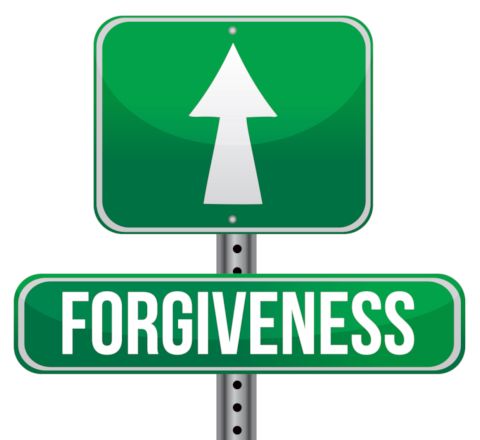There's more than enough forgiveness to go around
Yom Kippur
For the week of October 4, 2014 / 10 Tishri 5775
Torah: Vayikra/Leviticus 16:1-34; Bemidbar/Numbers 29:7-11
Haftarah: Isaiah 57:14-58:14
A World of Forgiveness
For on this day shall atonement be made for you to cleanse you. You shall be clean before the LORD from all your sins. (Vayikra/Leviticus 16:30)
I believe that in order to live effective lives, we need to understand the world in which we live. When I was younger I was controlled by fear, of which one manifestation was my being superstitious. Did I really believe that knocking on wood protected me from dangerous outcomes? - enough to do it! Did my father really believe "money makes the world go round?" - enough to make it the focus of his attention and to influence me sufficiently in that regard.
But since coming to know the reality of God through the Messiah and through my study of the Scriptures, I have discovered that the world is not what I thought it was. Superstitions are bogus. There are spiritual realities, but they are subservient to God and cannot be controlled via incantations or other devices. We cannot resolve our vulnerability through technique, but with faith in God and growing in his wisdom. Money is not what keeps the world running, God does. Obsessing over finances is a form of misguided worship that is rooted in evil. Money is important, but must be put in its place as a tool in our service of God and others.
Relating properly to the world in which we live requires a clear biblical perspective. The Scriptures teach that every one of us was born into a world that was created good by a loving God. That goodness was marred due to our first parents' rebellion against the Creator in the Garden of Eden. So while the creation is fundamentally good, it is broken, so to speak.
We also learn that accepting responsibility for the world's brokenness is a key component of overcoming it. Human beings were established by God as stewards of Planet Earth. That is why the disobedience of the first man and woman had such far reaching effects. That doesn't mean we blame them for the mess we have inherited, for our God-given responsibility has never been rescinded. We still need to do our part.
Failure to fulfill our responsibilities has produced a good deal of guilt and shame, which exacerbates our brokenness. Because we were designed by God to fulfill his stated purposes, our inability to perform according to that design puts us out of sorts with his plan and, just like Adam and Eve, alienates us from God and from one another in all sorts of ways.
Yom Kippur (English: the Day of Atonement - this year beginning the evening of October 3), was an essential day in the life of ancient Israel to address all this. The annual rituals of sacrifice and humiliation preserved Israel's priestly function in the world. In ways I still have yet to understand, the great volume of animal blood spilt through these and the other sacrifices cleansed the leaders and the people from the effects of sin year by year. But the effect of the deaths of innumerable animals was not so much the resolution of the human predicament but rather a graphic reminder of it.
However, we don't live in the world of the Jewish ritualistic system any longer. The sacrifices were given to Israel through Moses in the Torah in anticipation of the day when sin would be finally atoned for through the Messiah's perfect and final sacrifice. As a result we now live in a world of forgiveness.
Even though we still live in a broken world, that brokenness has been significantly addressed through a storehouse of forgiveness now available to all who trust in Yeshua. The crushing burden of the responsibility we all share for both the wrongs we have inherited from past generations and those we ourselves have committed has been alleviated through an infinite supply of forgiveness. Those alive prior to Yeshua's coming could only anticipate what is readily available to those since.
Because Yeshua has fully satisfied our obligations before God, we have all we need to not only experience forgiveness ourselves, but also to be able to extend forgiveness to others for any and all wrongs done to us. While the world of forgiveness we now live in doesn't automatically heal the world's brokenness, it certainly provides the basis for its eventual complete restoration - something which we can begin to enjoy now.
---
Unless otherwise noted, scripture quotations are from The Holy Bible, English Standard Version®, copyright © 2001 by Crossway Bibles, a publishing ministry of Good News Publishers. Used by permission. All rights reserved.
Comments? E-mail: comments@torahbytes.org
Subscribe?
To have TorahBytes e-mailed to
you weekly, enter your e-mail address and press Subscribe
[ More TorahBytes ] [ TorahBytes Home ]

